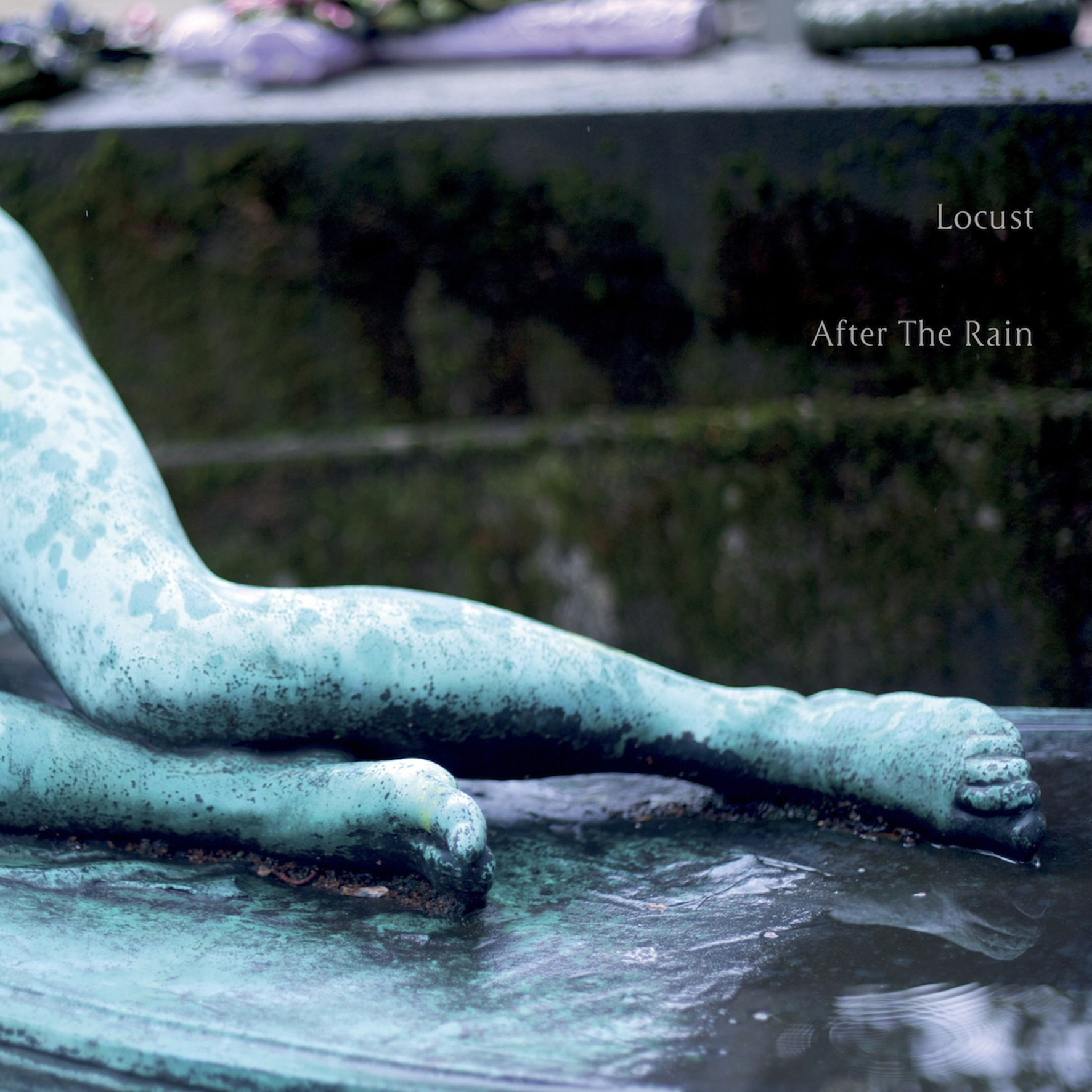 Locust's latest album is a definite anomaly, as Mark van Hoen and Louis Sherman depart from van Hoen's usual distinctive and production-heavy strain of hallucinatory electro-pop to ostensibly pay homage to '70s electronic music (sort of).  The result is an array of atypically loose and sketch-like soundscapes that retain Mark's love of processed female vocals, but veer away from the (imaginary) dancefloor and into more abstract and cinematic territory. It is certainly a pleasant listen, recalling at times Piano Magic, an alternate soundtrack to Donnie Darko, and some of Vangelis & Jean Michel Jarre's better work, but it is ultimately a bit less substantial and satisfying than some of Mark's other recent efforts.
Locust's latest album is a definite anomaly, as Mark van Hoen and Louis Sherman depart from van Hoen's usual distinctive and production-heavy strain of hallucinatory electro-pop to ostensibly pay homage to '70s electronic music (sort of).  The result is an array of atypically loose and sketch-like soundscapes that retain Mark's love of processed female vocals, but veer away from the (imaginary) dancefloor and into more abstract and cinematic territory. It is certainly a pleasant listen, recalling at times Piano Magic, an alternate soundtrack to Donnie Darko, and some of Vangelis & Jean Michel Jarre's better work, but it is ultimately a bit less substantial and satisfying than some of Mark's other recent efforts.
Locust open After the Rain with the lushly melancholy piano and synth reverie "Snowblind," which sounds very well like it could have been plucked straight from an imaginary Vangelis album, but it is generally quite hard to figure out which specific artists Locust are drawing their inspiration from at any given time.  I was initially quite surprised that the album veered more towards the more mainstream Jarre/Vangelis axis of '70s electronic music than the far hipper (and heavier) Berlin School until I gave the matter some thought and realized that it was highly unlikely that a 13-year-old Mark van Hoen was scouring record bins for the hottest Cluster and Klaus Schulze albums in 1979.  I am sure that those albums were around (Mark grew up in London), but they probably came later in his musical development.  Also, given van Hoen’s documented early love of Brian Eno and Tangerine Dream, I was puzzled to see almost no apparent shades of either on display.  Rather, After the Rain mostly sounds like a nostalgic and vaguely hallucinatory recreation of all the electronic music a '70s teenager would have experienced through film soundtracks, albeit one with all the dark, dramatic, or weird bits filtered out to leave only a melancholy dreaminess.
That is where the Donnie Darko comparison comes in (though it would probably make van Hoen wince), as touches like the bleary minor key arpeggios and sighing wordless female vocals of "To Lonely Shores" sound like they belong in a horror film that is not quite a real horror film, but some sort of half-remembered Romantic fugue state.  Whether or not that this the richest creative vein on the album is certainly up for debate, but such pieces (like "Sorrow Stays") are definitely the ones that stay stuck in my head after the album has ended.  Sherman and van Hoen also cover a lot of other stylistic ground over the course of these 12 fairly short songs, however, touching upon sci-fi damaged chamber music ("Downlands"); thick, fuzzy "early science documentary"-style analog synth tones ("Signals"); spacey, flange-heavy drone ("Under Still Waters"); and even a piece that sounds like a proto-Locust emerging from a Tangerine Dream-meets-John Carpenter chrysalis ("Won't Be Long").
I am not sure that I would necessarily say that After the Rain has any serious flaws, but some aspects of it certainly make it a bit of a hard sell.  For example, it is a Locust album that does not particularly sound like Locust, nor is it even remotely as impressive as something like 2012's The Revenant Diary.  Also, many of the songs are around 2-minutes long, making it feel like a collection of incidental pieces rather than a significant statement.  That said, however, van Hoen brings quite a bit of his usual rigor and perfectionism to the table despite his dramatic change in both direction and process (he eschewed his usual elaborate production in favor of the looser, simpler tactic of recording "live"): this is an intelligently sequenced effort that flows and segues fairly seamlessly between disparate motifs and I rarely get the sense that Mark and Louis are merely improvising.  More importantly, Locust managed to do something quietly amazing with After the Rain: they managed to make a foray into the current wildly overcrowded retro/synth-worship scene that does not sound like anything that anyone else is doing.  While I do not think anyone looking for a new Locust album will necessarily be delighted with what they find here (it is likable, but not exactly Locust), I suspect this album may find some traction with a new generation of synthesizer fans and deservedly expand van Hoen's audience a bit.
 
 
Read More

